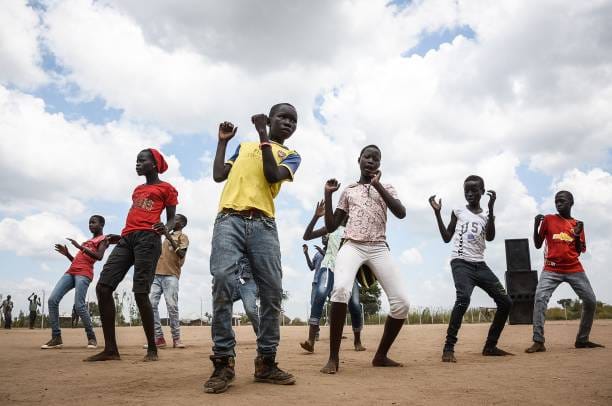Kampala, Uganda — Bidibidi refugee settlement in West Nile, Uganda, is home to thousands of South Sudanese refugees who fled the civil war in their homeland. With the South Sudanese government announcing plans to begin voter registration in June, many refugees are now eager to return home to vote in December.
Among them is 18-year-old Noel Amba, who arrived at the camp as a child in 2016 amid the conflict. “If I don’t go and vote for the president that I want, it is leading us back. Remember, in Uganda, as refugees we don’t get the support that we need 100 percent. That is why I find it important to go back home and vote. If the right leader comes, all the services will be rendered equally,” said Amba.
Africanews correspondent Raziah Athman reports that there are over 198,000 South Sudanese refugees in Bidibidi. “Since 2016, when Bidibidi was established, many of the refugees have grown into adults who can vote, but the asylum law prohibits them from participating in both local and national politics in both countries,” Athman said.
Last year, the governments of South Sudan and Uganda, along with UNHCR, conducted democracy education in the settlement. However, this was not necessarily to prepare refugees for political participation. Nabugere Joel, commandant of the Bidibidi refugee settlement, explained the conditions for refugees. “Yes, legally if someone avails himself to the protection of his country of origin, then they are no longer qualified to be a refugee unless assessed otherwise. Now, for the South Sudanese case, because of general war, someone can go back for different reasons. Some go for burial, some go to see family, but there is still war there, so we have not been really strict. When they come back and they avail, we reassess and readmit.”
The civil war, sparked by a conflict between President Salva Kiir and Vice President Riek Machar, resulted in around 400,000 deaths and millions of displaced people from 2013 to 2018. The UN remains skeptical about South Sudan’s ability to organize credible elections and demands that the country fulfill prerequisites, including drafting a constitution and unifying rival forces.
Despite the instability, refugees in Uganda remain hopeful that their vote will make a difference. “As you know, whether you go to the South, North, East, or West, your heart still belongs and looks back to your motherland. I’m looking forward to going back home for December elections in South Sudan… (but do you know what will happen afterwards?) …well, I don’t know what lies ahead, but I hope nothing bad will happen,” said Alfred Waran, another refugee.
In preparation for the elections, the South Sudanese government has released $14 million to election institutions. According to the head of the National Elections Commission, Abenego Akok, a draft timetable has been drawn for the first presidential election in the world’s youngest country.
As the refugees in Bidibidi look towards the December elections, their optimism is tempered by the challenges that lie ahead. However, the possibility of participating in shaping their country’s future provides a beacon of hope for many who have endured years of displacement and uncertainty.
https://www.africanexponent.com/south-sudanese-refugees-in-uganda-yearn-to-vote-in-december-elections/


